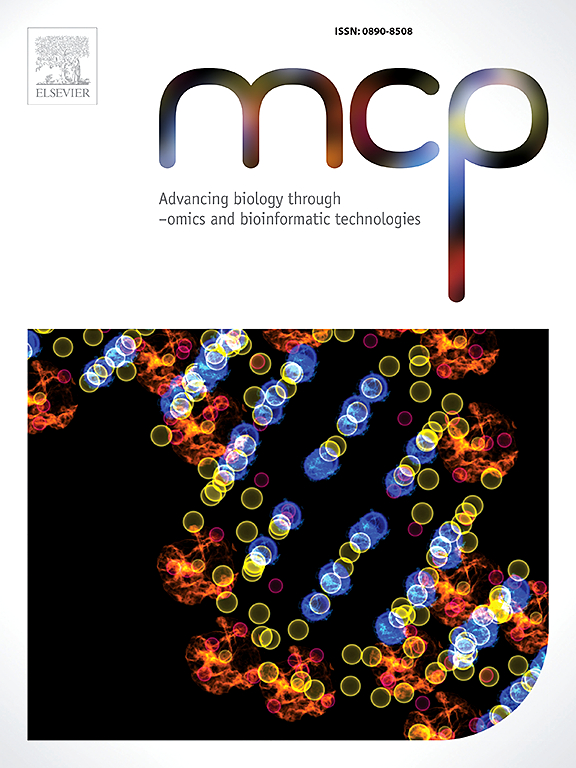HBx对肿瘤抑制基因RASSF1A的转录调控。
IF 3
3区 生物学
Q3 BIOCHEMICAL RESEARCH METHODS
引用次数: 0
摘要
在中国,肝癌的发生主要归因于慢性乙型肝炎病毒(HBV)感染。HBV X蛋白(HBx)已成为HBV相关肝癌的重要致癌驱动因素。然而,HBx促进肝癌发展的潜在机制尚不完全清楚。方法:本研究探讨HBx在调节肿瘤抑制基因RASSF1A中的作用。首先,利用荧光素酶报告系统构建RASSF1A质粒。双荧光素酶测定系统检测HBx对RASSF1A启动子活性的影响。Western blotting和定量PCR方法检测HBx对RASSF1A蛋白和mRNA表达的影响。采用芯片检测HBx与SP1的结合情况。采用CCK8、transwell、流式细胞术检测RASSF1A对HCC增殖的影响。甲基化特异性PCR分析HBx对RASSF1A甲基化的影响。结果:我们的研究结果表明,HBx以SP1结合位点依赖的方式显著增强RASSF1A启动子活性。当仅保留一个SP1结合位点时,HBx的作用被消除。RASSF1A可以抑制HCC的增殖。在表达hbx的THLE-2细胞中,RASSF1A的mRNA和蛋白表达水平均低于对照细胞,这与RASSF1A启动子甲基化程度较高有关。结论:这些发现表明HBx增强RASSF1A启动子活性并通过SP1上调转录,可能先于RASSF1A启动子甲基化。本研究为HBx在hbv相关肝癌中调控肿瘤抑制基因RASSF1A提供了新的见解。本文章由计算机程序翻译,如有差异,请以英文原文为准。
Transcriptional regulation of tumor suppressor gene RASSF1A by HBx
Introduction
The occurrence of liver cancer in China is primarily attributed to chronic hepatitis B virus (HBV) infection. HBV X protein (HBx) has emerged as a significant carcinogenic driver in HBV-related liver cancer. However, the underlying mechanism by which HBx contributes to liver cancer development is not fully understood.
Methods
This study investigated HBx's role in regulating the tumor-suppressor gene RASSF1A. Firstly, the RASSF1A plasmid was constructed using a luciferase reporter system. The dual luciferase assay system detected HBx's effect on RASSF1A promoter activity. Western blotting and quantitative PCR methods measured HBx's impact on RASSF1A protein and mRNA expression. Chip was used to test the binding of HBx and SP1. CCK8, transwell, flow cytometry were used to detect the effect of RASSF1A on HCC proliferation. Methylation-specific PCR analyzed HBx's effect on RASSF1A methylation.
Results
Our results show that HBx significantly enhances RASSF1A promoter activity in an SP1 binding site-dependent manner. When only one SP1 binding site remained, HBx's effect was abolished. RASSF1A can inhibit HCC proliferation. Both mRNA and protein expression levels of RASSF1A were lower in HBx-expressing THLE-2 cells than in control cells, correlating with higher RASSF1A promoter methylation.
Conclusion
These findings suggest HBx enhances RASSF1A promoter activity and upregulates transcription via SP1, potentially preceding RASSF1A promoter methylation. This study provides new insights into HBx's regulation of the tumor suppressor gene RASSF1A in HBV-related liver cancer.
求助全文
通过发布文献求助,成功后即可免费获取论文全文。
去求助
来源期刊

Molecular and Cellular Probes
生物-生化研究方法
CiteScore
6.80
自引率
0.00%
发文量
52
审稿时长
16 days
期刊介绍:
MCP - Advancing biology through–omics and bioinformatic technologies wants to capture outcomes from the current revolution in molecular technologies and sciences. The journal has broadened its scope and embraces any high quality research papers, reviews and opinions in areas including, but not limited to, molecular biology, cell biology, biochemistry, immunology, physiology, epidemiology, ecology, virology, microbiology, parasitology, genetics, evolutionary biology, genomics (including metagenomics), bioinformatics, proteomics, metabolomics, glycomics, and lipidomics. Submissions with a technology-driven focus on understanding normal biological or disease processes as well as conceptual advances and paradigm shifts are particularly encouraged. The Editors welcome fundamental or applied research areas; pre-submission enquiries about advanced draft manuscripts are welcomed. Top quality research and manuscripts will be fast-tracked.
 求助内容:
求助内容: 应助结果提醒方式:
应助结果提醒方式:


